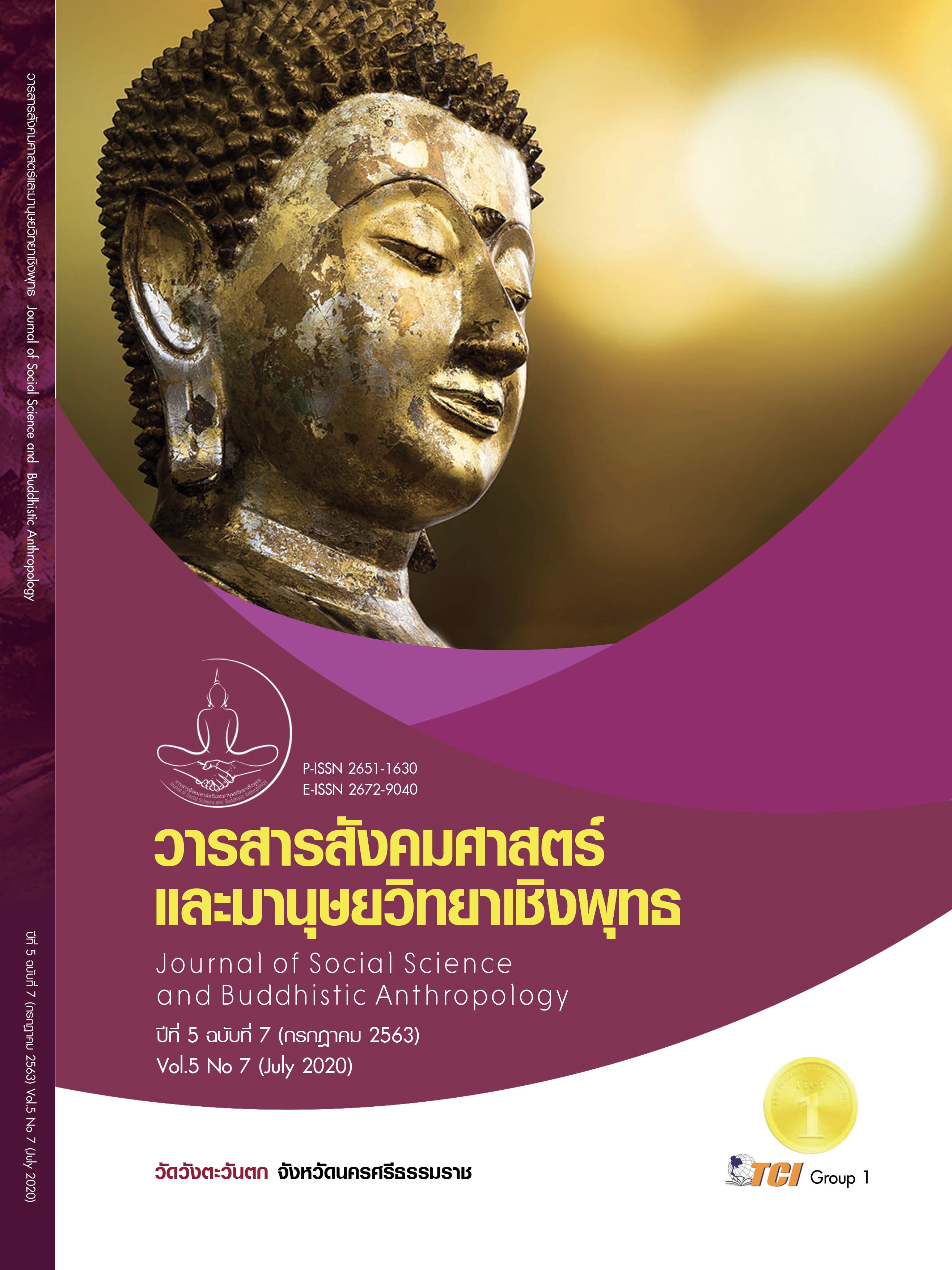STUDY AND ANALYZE THE SOCIAL STATE IN CAKKAVATTI SUTTA
Keywords:
Cakkavatti Sutta, The Social State, FreedomAbstract
The research aims to study and analyze the social state in the Tripitaka by using Thomas Hobbes's concept of social state. The results showed that Cakkavatti Sutta has a governing group which causes the society to grow, consisting of 1) self-reliance and 2) governing by using the Dhamma empire principles to solve social problems in 3 levels which are 2.1) Individual level 2.2) Family level and 2.3) Overall level, because of morality makes society stronger and human behavior is difficult to fix. Therefore, humans must be controlled by punishment according to social regulations with the controller and the punishment of the offender in order to help alleviate humans, refrain from doing evils. Therefore, it is in line with Thomas Hobbes's concept of selfish nature by believing that humans have three levels of society, just like the society, in which the individual level is Important thing of man, because it means their rights and freedom. Therefore, resulting in humans emphasizing prudence that means being careless in life and it is not something that has been with humans since birth, but from human experience, because of every human being has needs all the time as a result of his power or impulses. It can be seen that the social state of Thomas Hobbs and Cakkavatti Sutta, has a relationship between the governing system and the different aspects of human behavior just to seek the desired society. Therefore, the society should be in the same direction. But must have rules and regulations to control human behavior as well
References
ชูศักดิ์ ทิพย์เกษร และคณะ. (2548). พระพุทธเจ้าสอนอะไร. กรุงเทพมหานคร: โรงพิมพ์มหาจุฬาลงกรณราชวิทยาลัย.
นรี ภวกานตานันท์. (2538). การเมืองการปกครองในแนวพุทธศาสนา: ศึกษาจากนักคิดและพระไตรปิฎก. ใน วิทยานิพนธ์รัฐศาสตรมหาบัณฑิต สาขาการปกครอง. จุฬาลงกรณ์มหาวิทยาลัย.
พระมหาสมโภช ฐิติญาโณ (ศรีพันธ์). (2535). การศึกษาวิเคราะห์เศรษฐกิจตามแนวพระไตรปิฎก. ใน วิทยานิพนธ์พุทธศาสตรมหาบัณฑิต สาขาปรัชญา. มหาวิทยาลัยมหาจุฬาลงกรณราชวิทยาลัย.
พระมหาอุทัย ญาณธโร. (2538). พุทธวิถีแห่งสังคม. กรุงเทพมหานคร: สำนักพิมพ์ธรรมสาร.
มหาจุฬาลงกรณราชวิทยาลัย. (2539). พระไตรปิฎกฉบับภาษาไทย ฉบับมหาจุฬาลงกรณราชวิทยาลัย. กรุงเทพมหานคร: มหาจุฬาลงกรณราชวิทยาลัย.
วรางคณา นาคพนม. (2527). พื้นฐานการศึกษา. ลำปาง: วิทยาลัยครูลำปาง.
วัชระ งามจิตรเจริญ. (2552). พุทธศาสนาเถรวาท. กรุงเทพมหานคร: บริษัท โฟร์วัน พรินท์ติ้ง จำกัด.
สมภาร พรมทา. (2542). ปรัชญาสังคมและการเมือง. กรุงเทพมหานคร: จุฬาลงกรณ์มหาวิทยาลัย.
Hobbes, T. (1991). Leviathan edited by Michael Oakeshot. New York: Collier Books.









